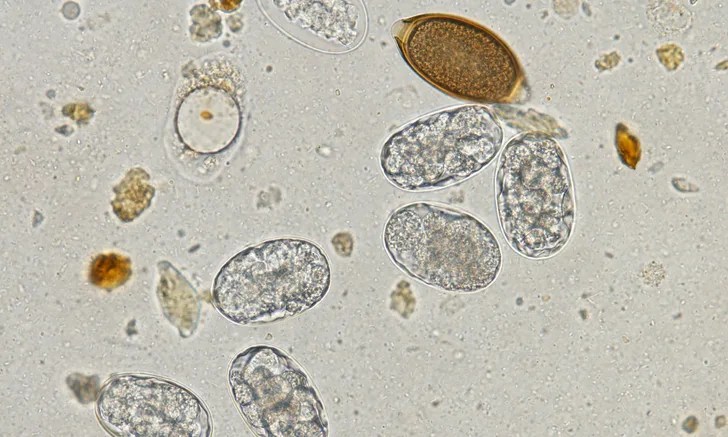Quiz: Fecal Parasite Tests: Antigen Detection, Flotation, & Baermann
Meriam N. Saleh, PhD, Texas A&M University

Tests for diagnosing parasitic infections include fecal flotation for recovery of parasite eggs, cysts, and oocysts; Baermann examination for recovery of motile larvae; and coproantigen tests for detecting antigen from cysts or select adult nematodes. In-clinic diagnostic tests include fecal flotation, Giardia duodenalis coproantigen tests, and Baermann examination. Adult worm coproantigen immunoassay for Ancylostoma caninum, Toxocara canis, and Trichuris vulpis infections in dogs is only available through external laboratories.1,2
Accurate diagnosis relies on choosing the most appropriate test to recover specific parasite stages; individual tests have varying strengths and limitations that can depend on parasite species. Understanding why a test may have a false-negative result is important; several factors, including life cycle (eg, prepatent period; parasite stage; density of the egg, cyst, or oocyst), can explain a negative result despite parasitosis.